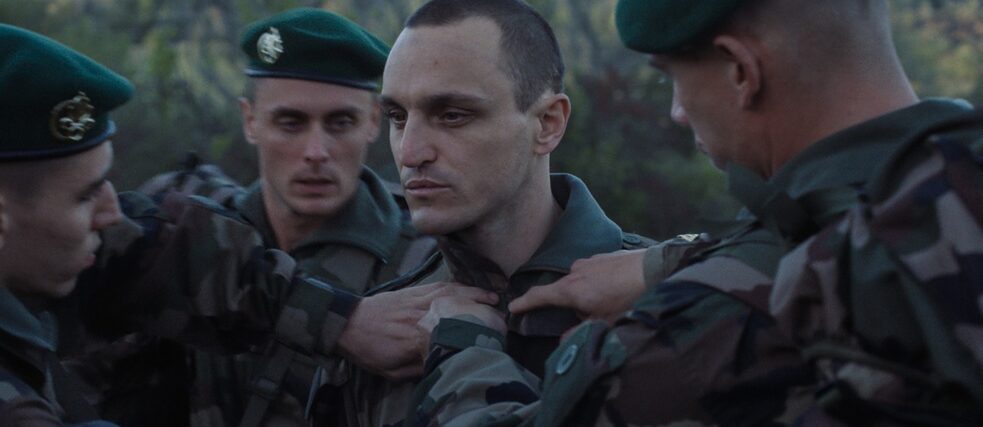Berlinale Bloggers 2023
If Captain Marlow met Mr Kurtz at a club

Franz Rogowski in “Disco Boy“. Director: Giacomo Abbruzzese
|
Photo (detail): © Films Grand Huit
“Disco Boy” follows a young foreign legionnaire to the Niger Delta. A suspenseful film with plenty of music – and rich references to world literature.
By Carlo Giuliano
Before James Gray shot The Lost City of Z, he asked Francis Ford Coppola and Werner Herzog for advice. Both of them had been driven to the very brink of madness by the hellish settings for Apocalypse Now and Aguirre, the Wrath of God. So when Gray asked them how best to go about shooting a film in the jungle, all they said was: “Don't do it.”
Panel discussion with Giacomo Abbruzzese and Franz Rogowski
But Giacomo Abbruzzese, an Italian director of documentaries and shorts, went ahead and did it: this is his first feature, and it’s screening in competition at the 73rd Berlinale. The upshot is called Disco Boy – a project that took him ten long years, from writing the script and raising the funds to the gruelling shoot in the heart of Africa. Abbruzzese talked about the ordeal during a small panel discussion alongside the German actor Franz Rogowski, who plays the lead.Rogowski is unquestionably the film’s biggest draw. And he may well be the most versatile and, above all, multilingual actor in European cinema these days: he can act in German, French, English and Italian. He’s best known in Italy for the 2021 film Freaks Out. In Disco Boy he plays Aleksei, a Belarusian who immigrates clandestinely to France, then joins the French Foreign Legion in the hope of obtaining French citizenship. But after returning from a mission in Africa, Aleksei will never be the same again. If he really does return.
Film and literary influences
Full Metal Jacket and Apocalypse Now are among Disco Boy’s many recognizable cinematic influences. Comparisons of this kind, however, are liable to eclipse the fact that Disco Boy can stand on its own merits – and brilliantly at that – with its compelling mix of film de guerre and visual impressions drawn from club culture.But its literary allusions are even more exciting. Abbruzzese mentioned Céline’s Journey to the End of the Night, which happens to be one of my own favourite novels. So, referencing Joseph Conrad’s classic Heart of Darkness as well, I asked Abbruzzese and Rogowski, “Marlow and Bardamu are both characters who reach their destination at the end of the night and escape from the heart of darkness at the last minute. Is this true of Aleksei, too? After descending into hell, does he manage to come out the other side?”
The two of them corroborated my references to world literature. But their answer (which was a bit too long to quote in full here) says a lot about the honesty of this film, which is highly nuanced: “We weren’t out to make a film about hell. There are no bipolarities, no victims or executioners. There’s only one world we inhabit. And we have no choice but to learn to dance with the enemy.”